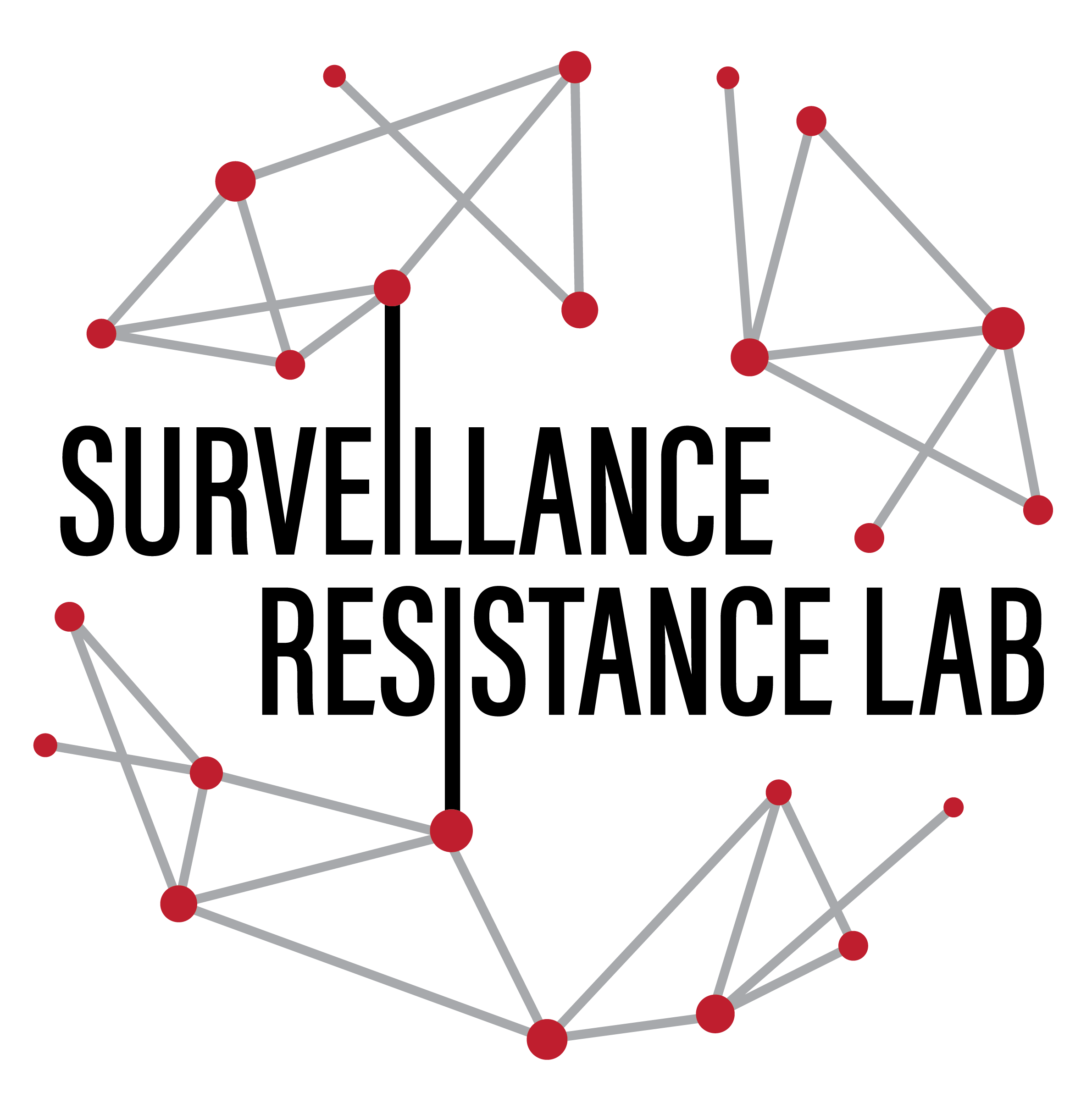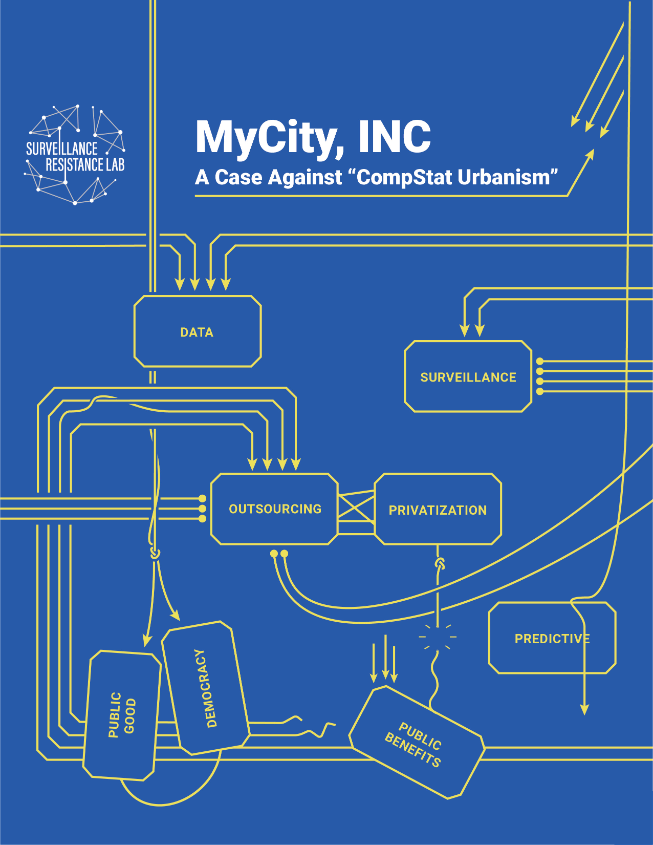MyCity, INC: A Case Against ‘CompStat Urbanism’ highlights concerns about the potential for this technology to expand policing and embed corporate entanglements into digital public infrastructure. Drawing from examples across the country, the report demonstrates how similar data projects have not expanded access to social services, but led to automated denials and the diversion of public dollars to corporations and to police instead of to people in need of a social safety net.
This report reveals that the Adams plan for MyCity, a portal promising to streamline access to city services, may come with pitfalls. “MyCity, INC” details how Mayor Adams’ plan for MyCity, “a one stop shop” for city services on the front end, also includes a centralized data portal with an executive dashboard on the backend.
For the past decade, the centralization of New York City agency data has increased law enforcement’s ability to access information about what social services people access and other data collected in the process. This report collects cautionary tales from other cities that relied on “AI governance”—outlining examples of automated denials to benefits, AI-generated accusations of fraud, and other technologies that pushed people out of social safety nets and into handcuffs.
The Adams administration, the report warns, has embraced this future role for technology in New York. During his campaign he promised to “CompStat the City” through the data centralization under the Office of Technology and Innovation that Adams’ vision for MyCity will require. CompStat was a NYPD dashboard management system under former Police Commissioner Bill Bratton that centralized crime statistics in 1994. CompStat’s critics, including former police captain John Eterno, who wrote the book The Crime Numbers Game: Management by Manipulation, flagged the flaws in the statistic-driven strategy and how it turned policing into a “short-term numbers game.”
The report’s authors make the case that Adams’ intention to “CompStat the City” through the MyCity portal must be scrutinized in the context of that history. It examines the City’s IT consolidation over time, its history of IT procurement scandals, and the disparity between what Adams has promised for MyCity on the campaign trail versus how he is delivering it. The report’s authors say the plan is unlikely to deliver better city services for New Yorkers, and that it has the potential to reinforce inequality and unequal power relations.
In addition to examining the vision for the backend of MyCity portal with a critical lens, the report also looks at the costs of AI governance to taxpayers and democracy. It projects that, along with the $17 million in contract costs that have already piled up since 2022, uncalculated costs will be introduced through the Master Service Agreements that locks big tech companies into the city’s infrastructure.
Finally, the “MyCity, INC” report points to the hypocrisy of austerity politics and corporate expenditures by placing the projected costs of library closures on Sundays ($24 million), in conversation with the current cost of MyCity contracts ($17 million). City libraries now predict that the impact of additional budget cuts will require them to close branches on the weekends and New Yorkers continue to experience cuts of vital services, while corporate consultants and police continue to get paid.
The “MyCity, INC” report ends with a call to action, asking the New York City Council to hold a hearing on the plan and to center the key concerns about the true costs of MyCity, not just to the City’s bottomline, but to New Yorkers and democracy.
How will this infrastructure be used for policing purposes?
- DATA-GATHERING:
- The City wants all of its agencies to generate more data. For example, digital wallets (like those used for migrants seeking asylum in NYC) allow city agencies to gather data on what people spend money on and control where they spend it. We defeated the attempt to turn IDNYC into a digital wallet in 2019, but we expect the administration to try to expand digital wallets through more city agencies.
- DATA-LABELING :
- The City wants to be able to follow one person’s journey through encounters with the City, whether through social services or the criminal legal system, as a whole. New digital driver’s licenses, like the one Gov. Hochul recently announced, merge your identification with digital wallets and become a powerful surveillance tool. It creates a data point every time you use it, allowing the government to map everything you do (at airports, banks, hotels, liquor stores, and online). See our Resources page for more information.
- DATA-SHARING:
- The City will not sit on such a treasure-trove of data. It will become the foundation for unbridled data-driven social policy experiments designed by corporate tech vendors. Our report MyCity, INC documents cautionary tales of similar experiments in other cities and the millions of dollars already spent on the new “care-coordination” data sharing tech “MyCity”, not including how much more will be charged under the Master Services Agreements with the Big Tech companies that dominate NYC’s digital infrastructure.
New laws and legal agreements→
- NYC’s “MyCity” data sharing agreement signed in 2023 gives the NYPD a “one stop shop” to demand everything city agencies know about a person’s contact with city services from the Office of Technology and Innovation.
- The NYS One City Act legislation allows NYC agencies to share more information.
- It permits data sharing for “care coordination”–including sharing mental health data with the NYPD. In fact, the bill points to the Mayor’s Subway Safety Plan–which includes using SCOUT teams of DOHMH social workers and NYPD to forcibly remove people from subways.
So far, apart from the NYS One City Act, how all of these tools develop has been largely kept behind closed doors.
********
Acknowledgements
Presidential Penn Compact Professor of Cinema and Media Studies Shannon Mattern warned against “CompStat Urbanism” in her op-ed “The Problems Data Can’t Solve: Eric Adams Puts Too Much Faith in the Power of Statistics and Algorithms” in New York Daily News (blog). The authors of this report would like to also acknowledge the helpful guidance of Mizue Aizeki, who contributed framing, analysis, and line edits with eagle eyes and Dhaksh Sooriyakumaran, for refining our words with stellar copyediting. We also thank our initial readers Vincent Southerland, Associate Professor of Clinical Law and Faculty Director, Center on Race, Inequality, and the Law at NYU Law, Amba Kak, Executive Director of AI Now Institute, Kevin De Liban, Founder, TechTonic Justice, and Jerome D. Greco, Digital Forensic Supervising Attorney at The Legal Aid Society.
Preferred Citation: Cynthia Conti-Cook and Ed Vogel, MyCity, INC: A Case Against “CompStat Urbanism” (New York: Surveillance Resistance Lab, March 18, 2024).
My City Hearing
On September 30, 2024, the New York City Council Committee on Technology held an oversight hearing on the MyCity Portal, “a centralized platform for City services and benefits” that Mayor Adams and his administration claimed will be “a one-stop shop for New York City services and benefits.”
At the hearing, more than a dozen organizations testified. Many raised shared questions and concerns about the MyCity portal expanding policing powers throughout more City government departments and services, as well as the lack of data protection measures in the digital infrastructure being silently built to support it. Multiple organizations raised the alarm about how the corporate capture and outsourcing of these services to private contractors will have serious– and potentially dangerous– long-term consequences for the everyday life of New Yorkers.

